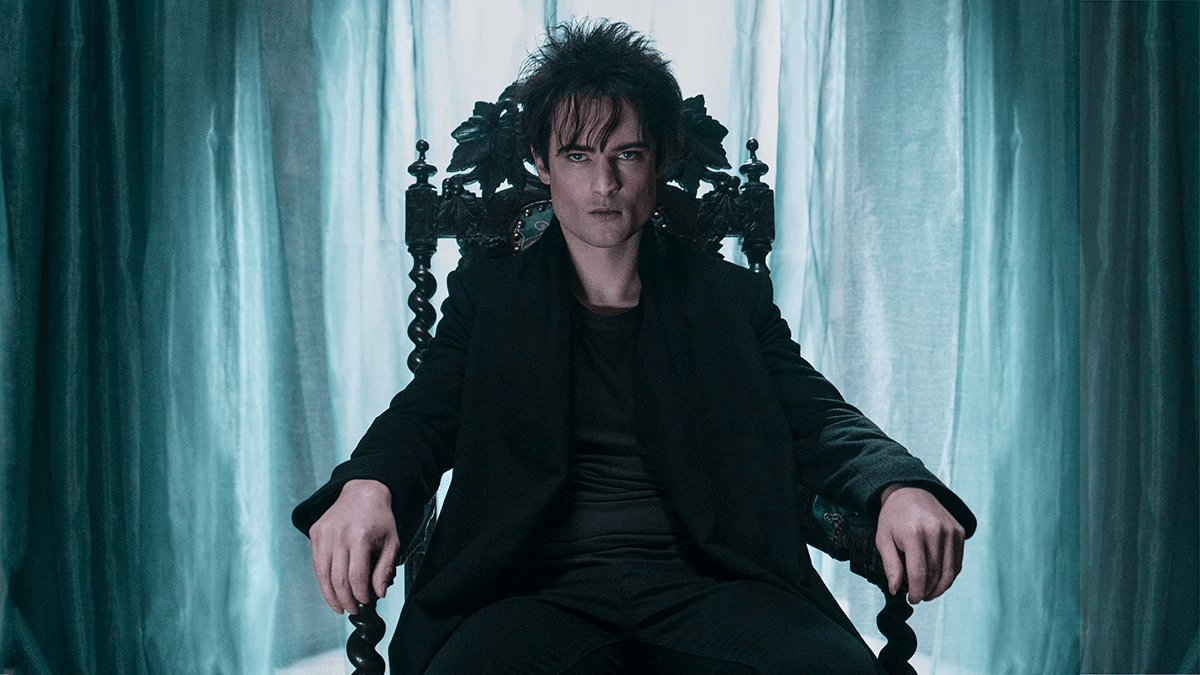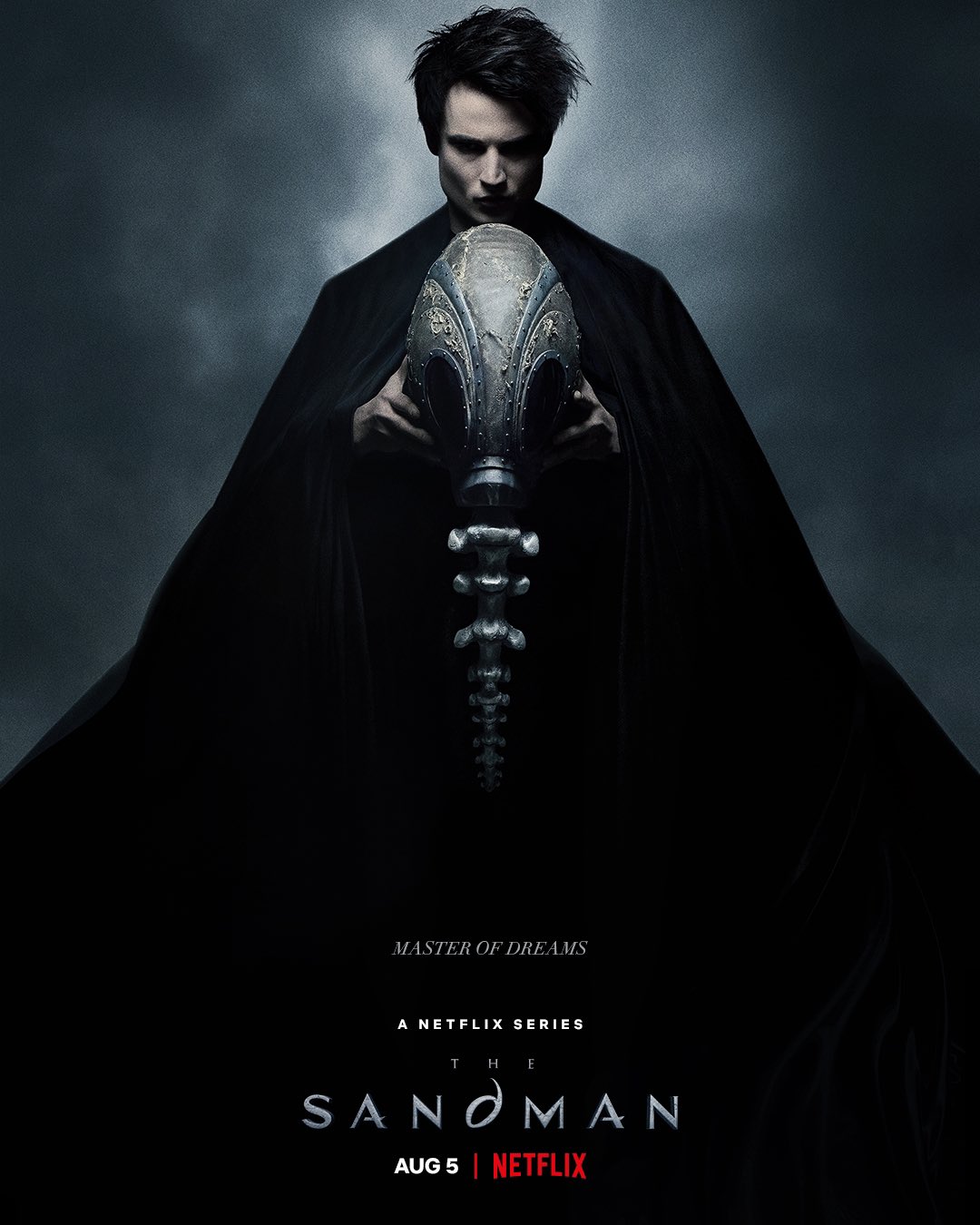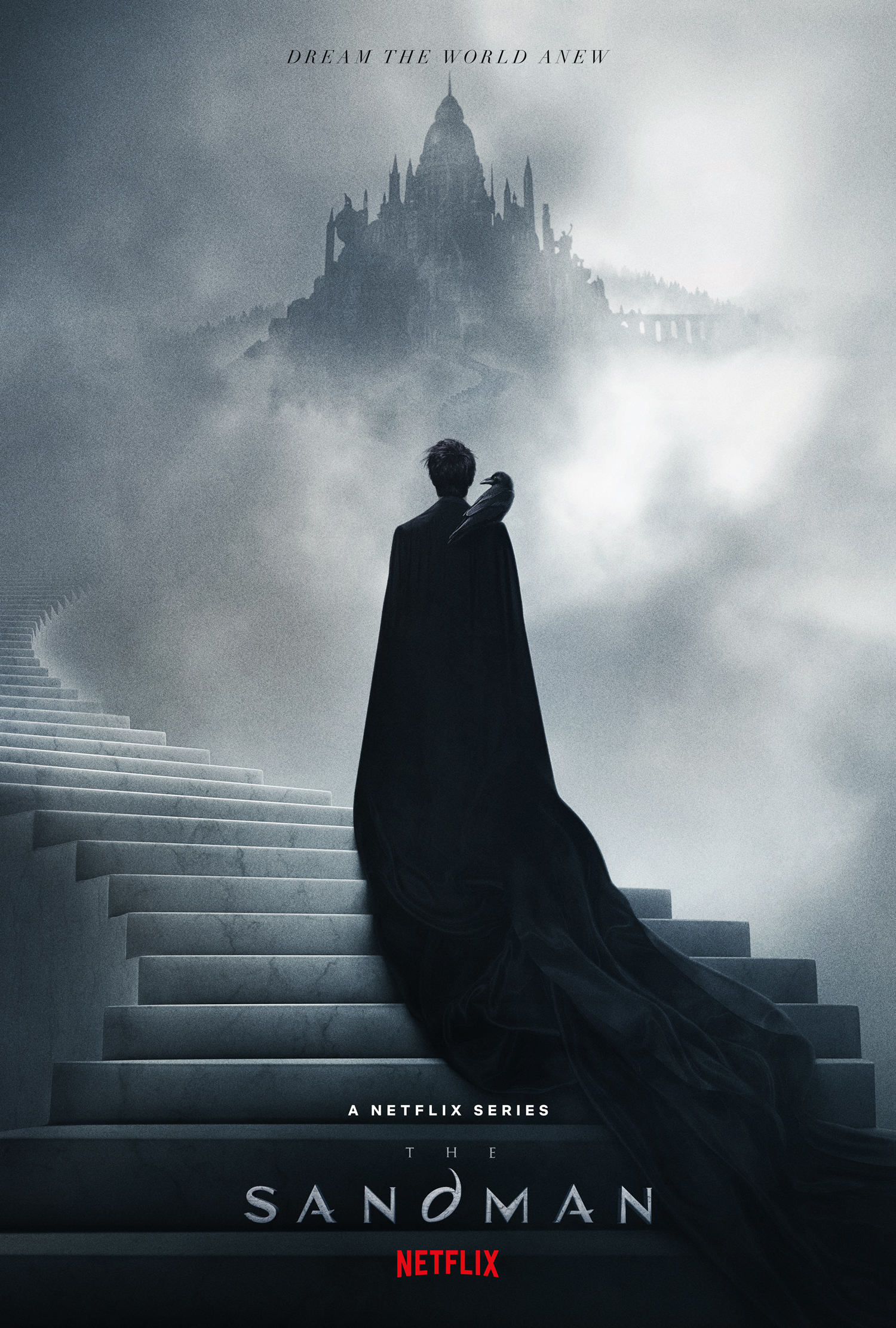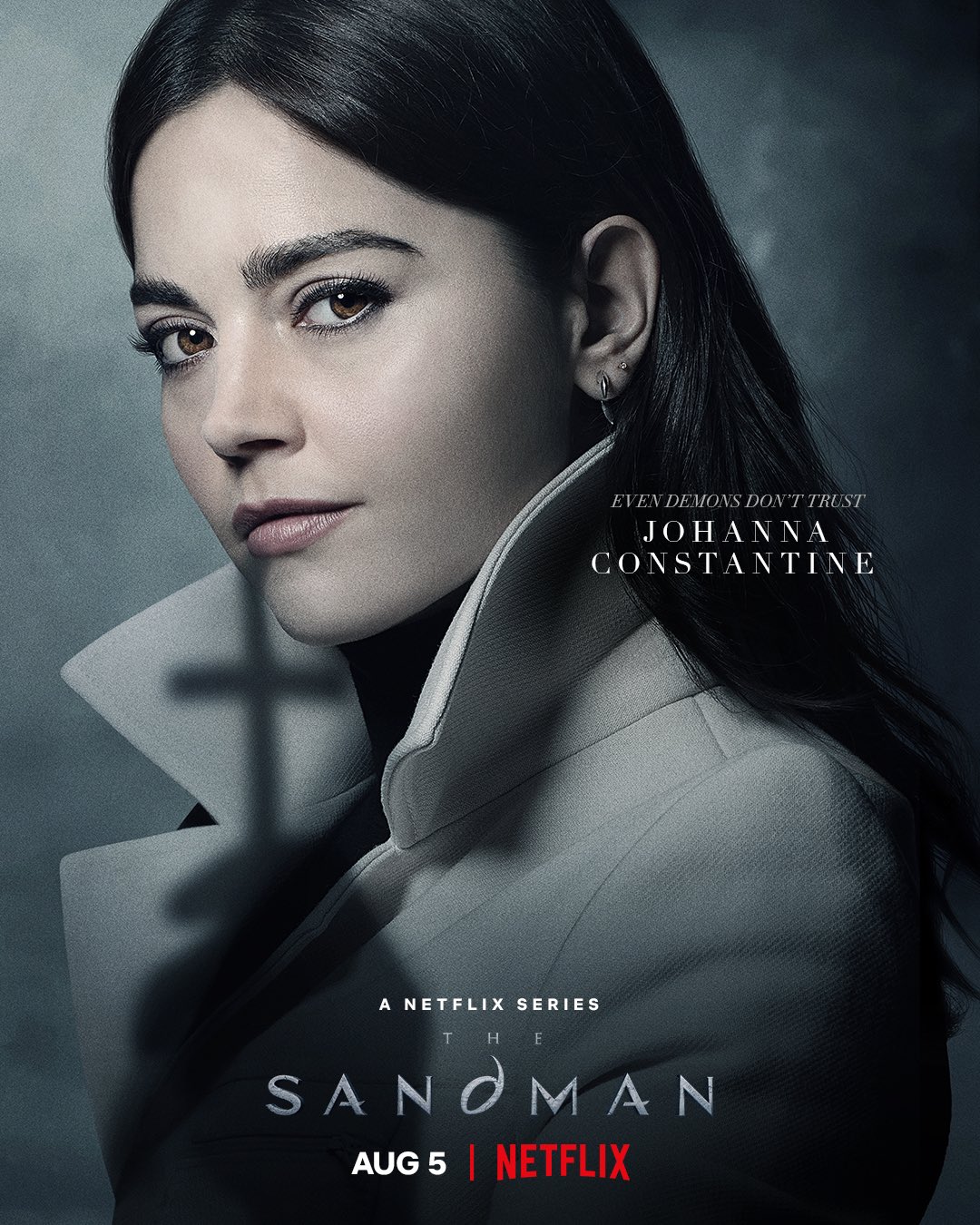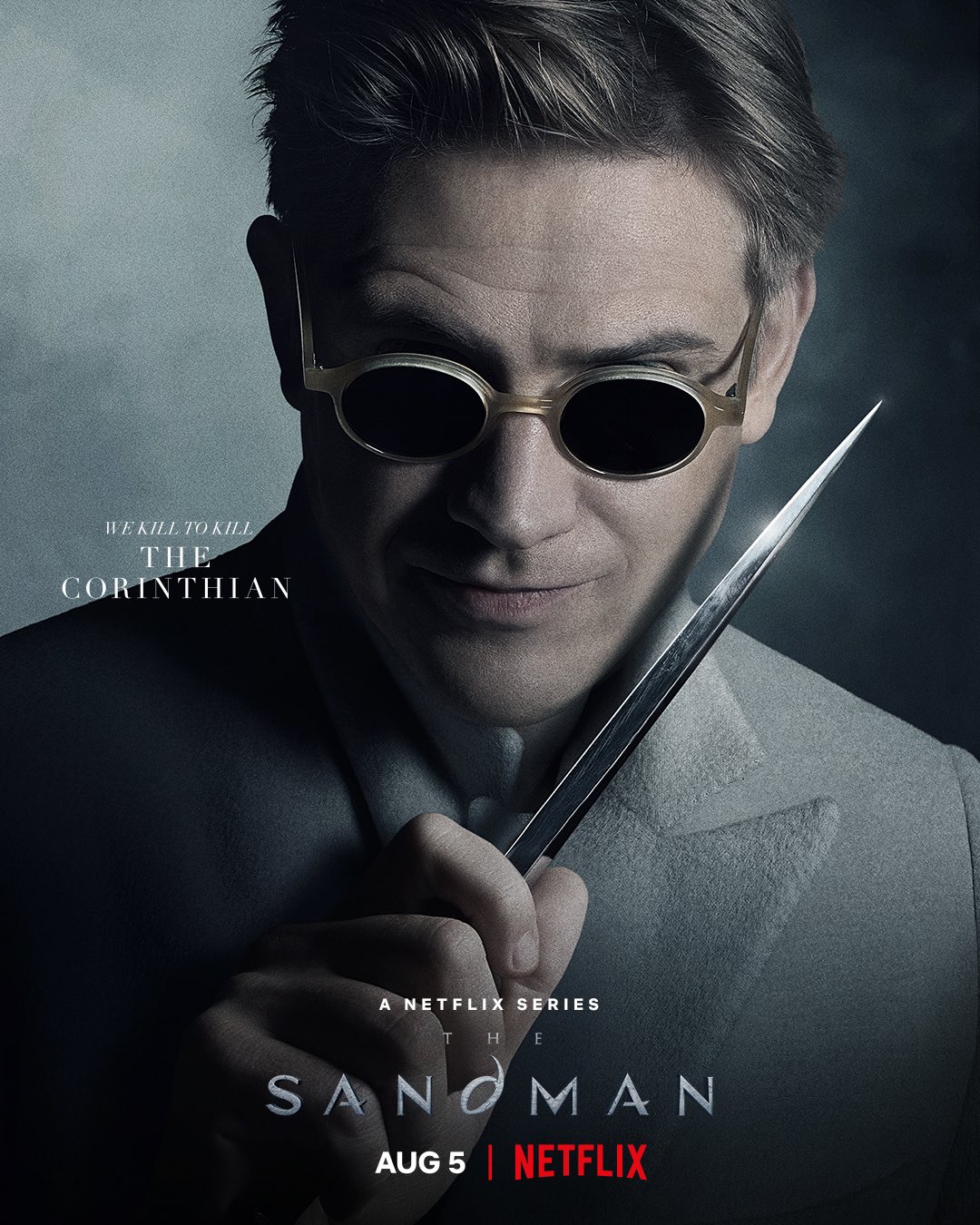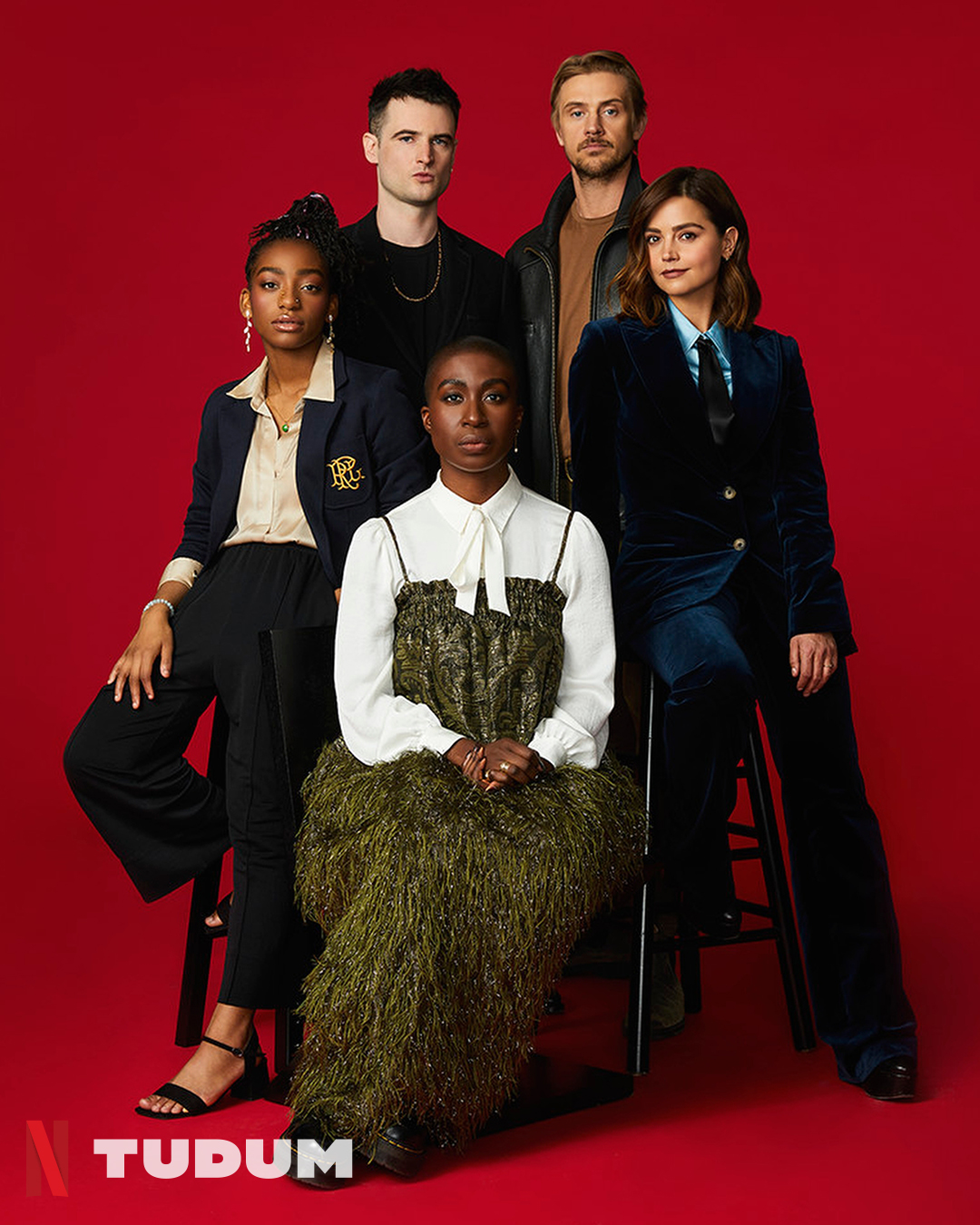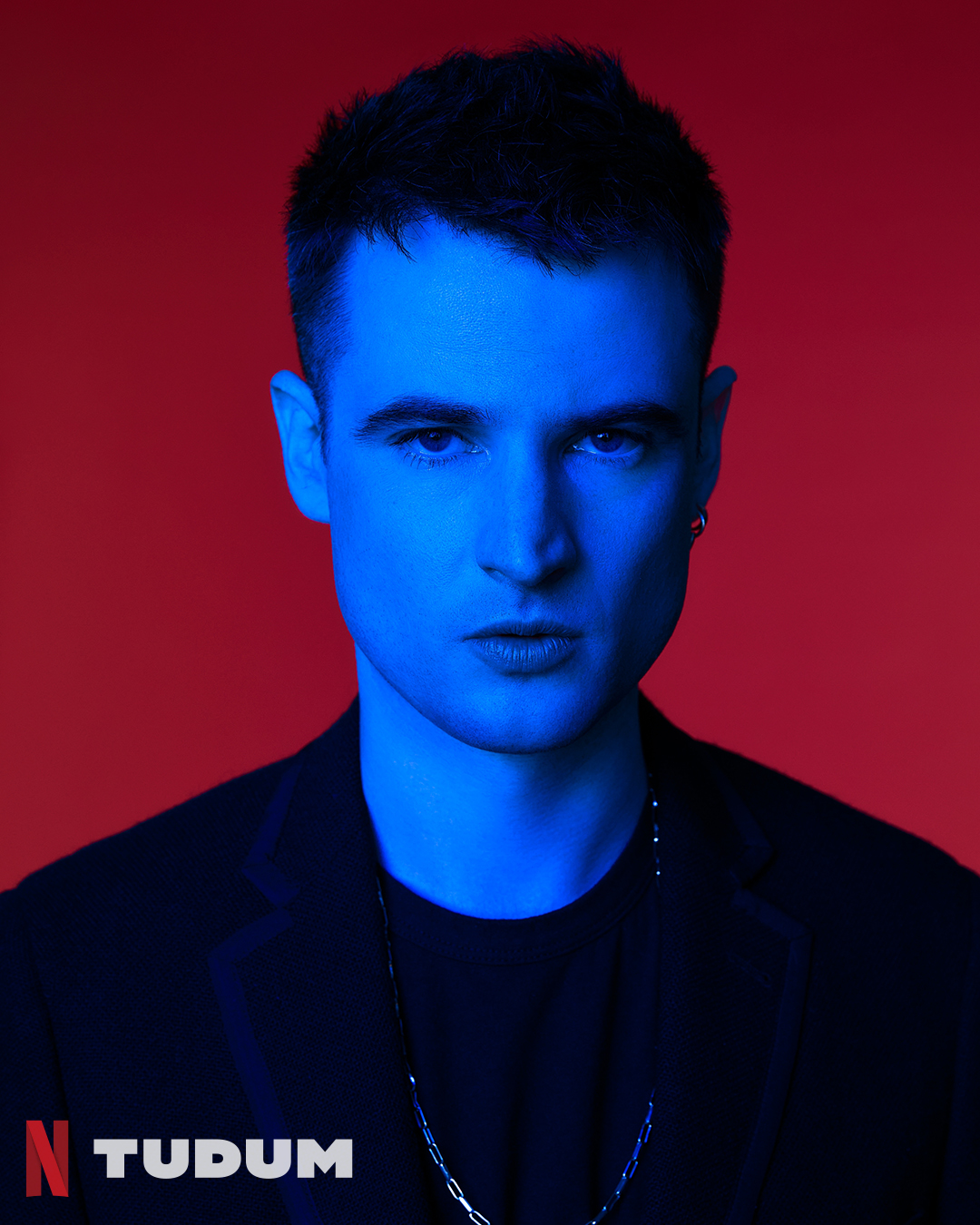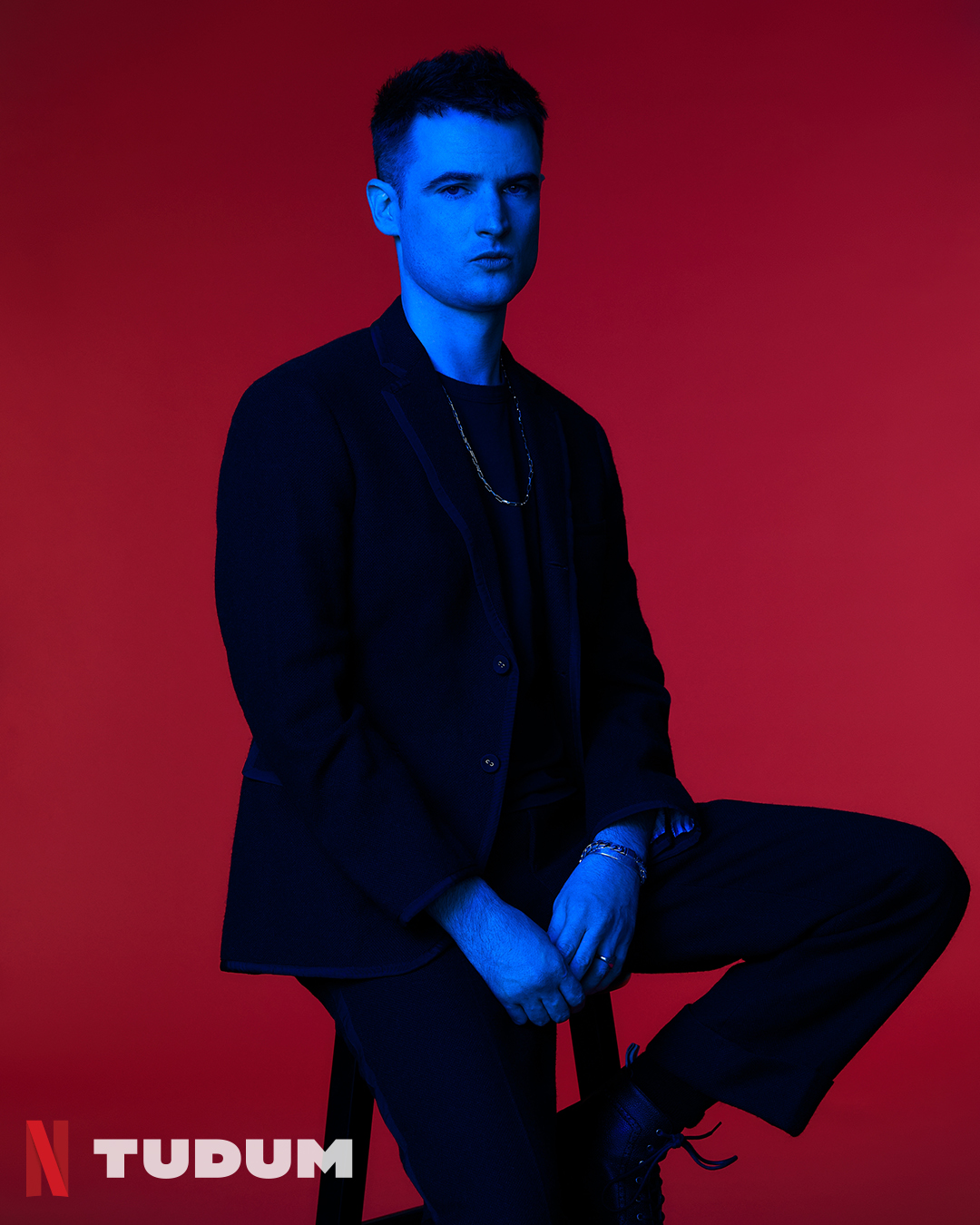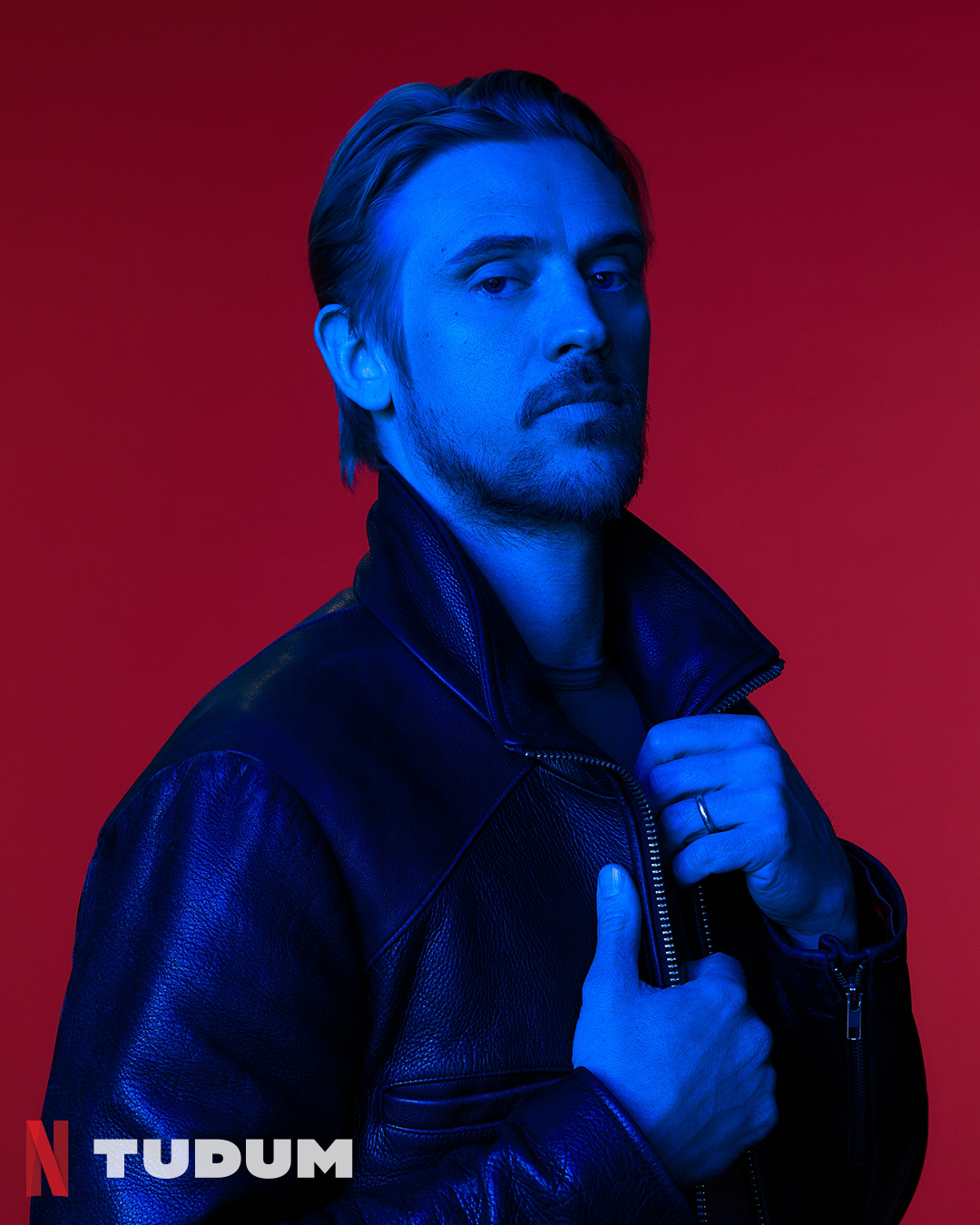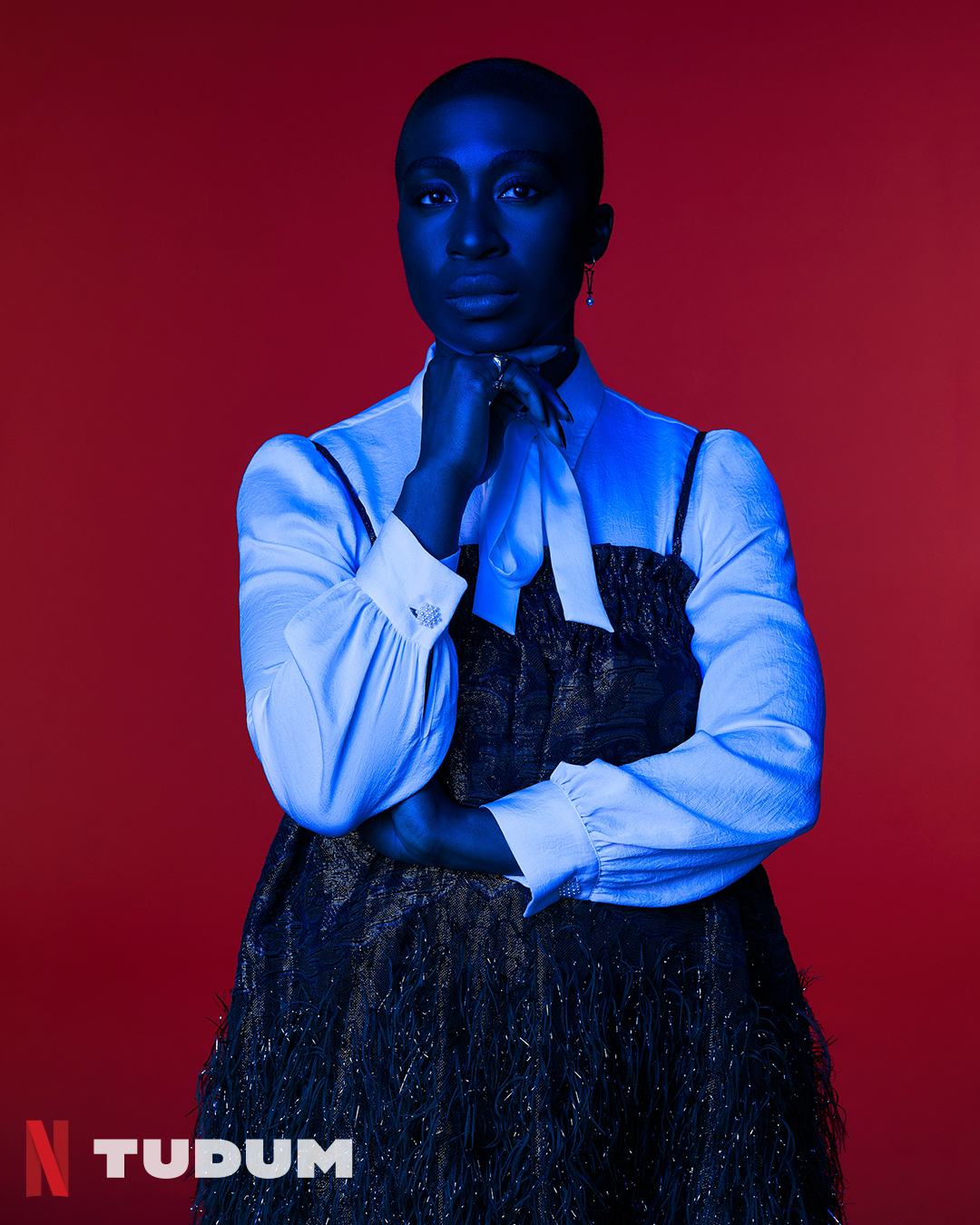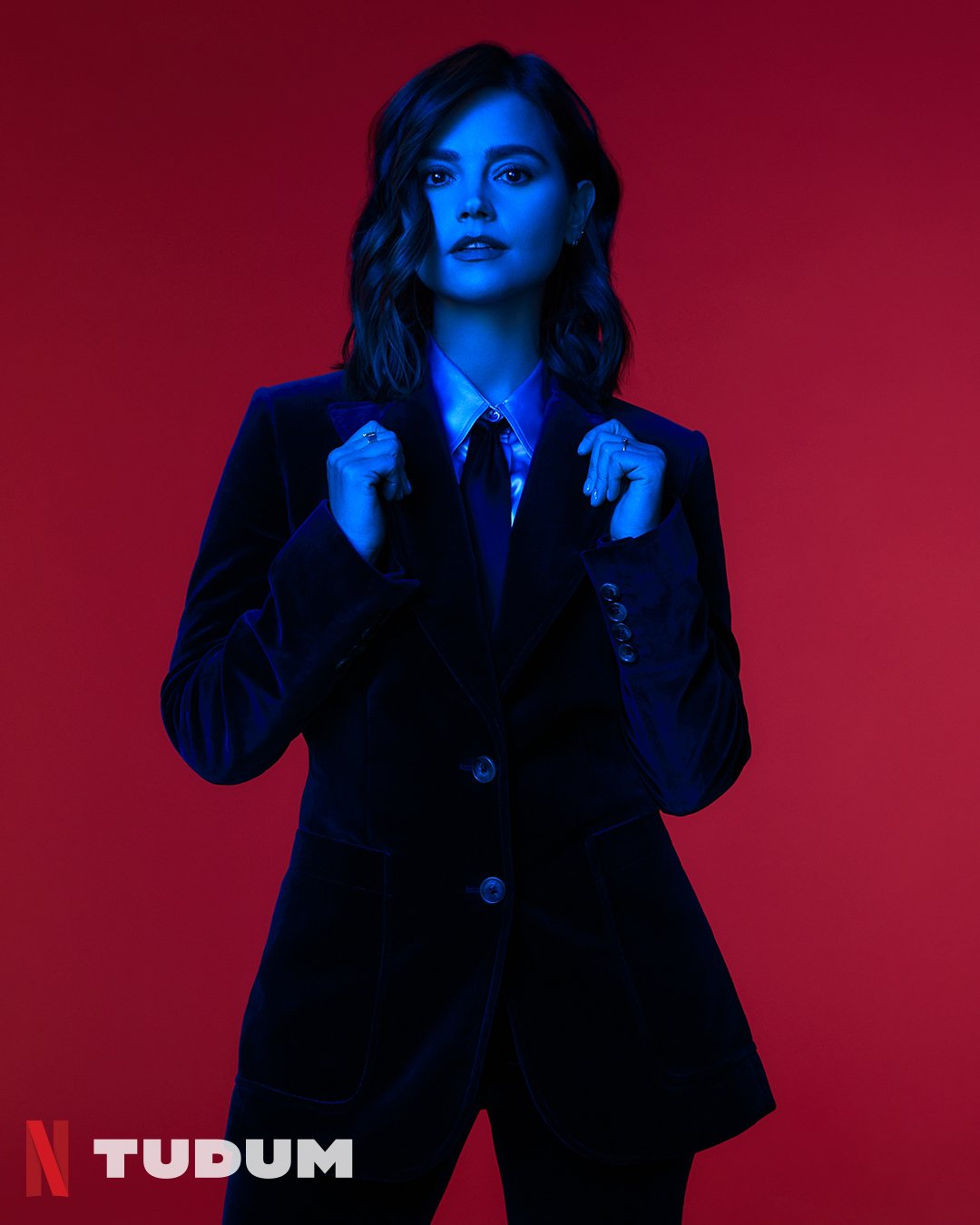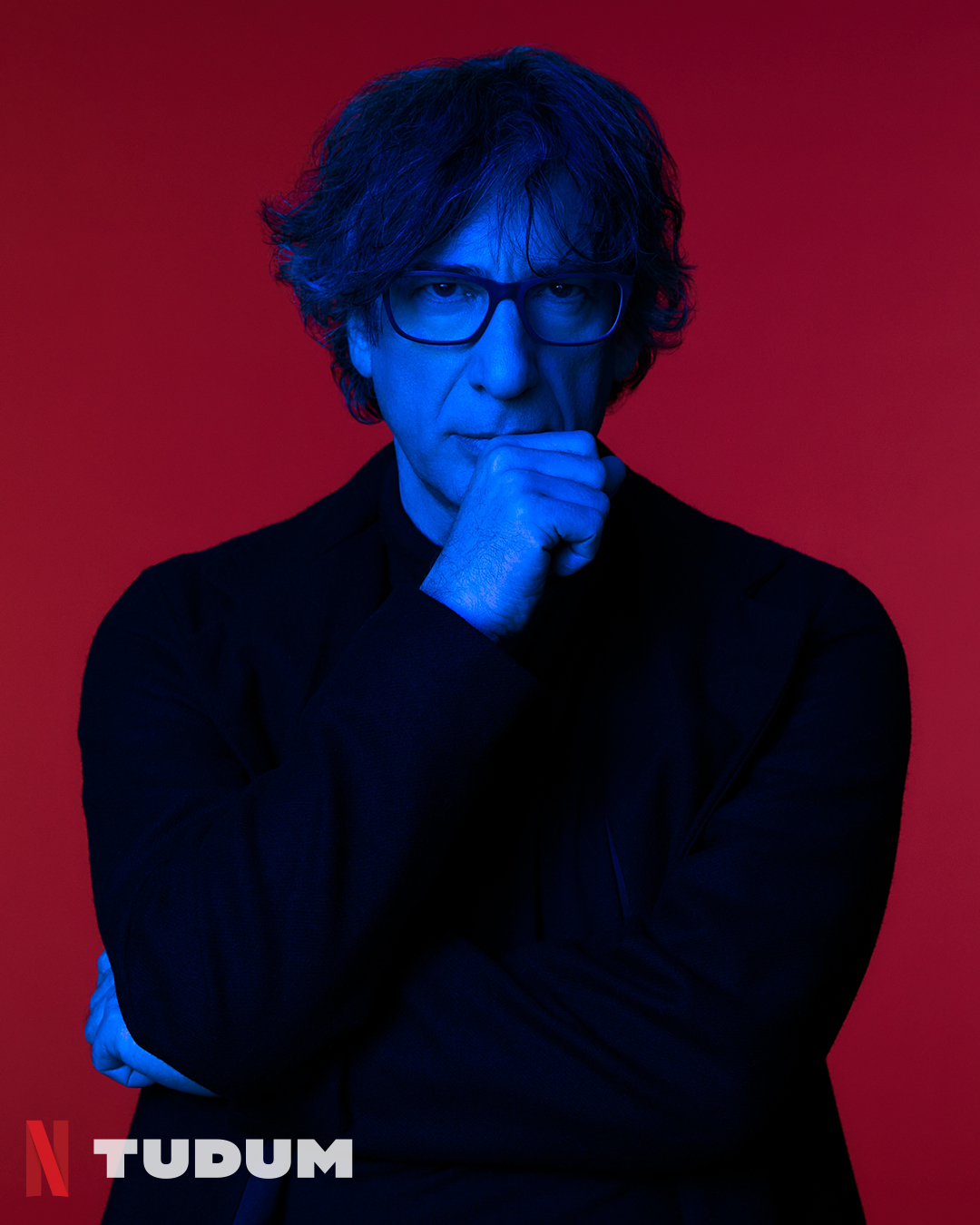David Buckley is an Emmy-nominated composer for film and television, who has collaborated with numerous heavy hitters in the industry, from Paul Greengrass through to Ben Affleck. In his latest project he came together with showrunner Allan Heinberg, author Neil Gaiman, and virtuoso Renaissance man David S. Goyer for The Sandman on Netflix.
He recently took time out to discuss his involvement with We Got This Covered, waxing lyrical on the challenges and cherished moments which made up his time on the project.
Your involvement with The Sandman might not seem like an obvious match at first glance, so how did you get involved?
You realize how vast The Sandman landscape is, this isn’t straight up fantasy, and I think that is the point, we’re in so many different spaces . When Allan Heinberg and Neil Gaiman were figuring it all out before there was a composer attached, they were picking music from lots of different genres. They looked across the spectrum of what they were doing and thought I might be a good fit. Even though there were lots of composers in the tent, it seems that I had ticked multiple boxes and The Sandman needed someone like that. Neil Gaiman himself said the first season feels like seven pilots. The fact that during my career I have not lived in one musical space, but literally inhabited a multitude, is possibly what got their attention.
In terms of collaboration, with Neil Gaiman and David Goyer, how did that feed into your creative process?
In the television world there are lots of chefs. Alongside Neil and David you also have Netflix, DC, Warner Bros. and numerous other people getting involved. My conduit to them all was the show runner Allan Heinberg, because you really need all these influences funneling through one person. For me, it was Alan and I who had the initial creative conversations which we maintained from beginning to end. Any thoughts from Neil or David or anyone else would come via Alan, and he and I would talk continually.
The initial stage was him walking me through this universe that I didn’t know particularly well. I was aware of The Sandman and this genre, having worked on the Wonder Woman franchise and Batman: Arkham Knight. However, I didn’t know the mythology of it in any great depth, so my first conversation with Alan was really “here’s Neil’s world, now what are we going to do”.
As this story unfolds The Sandman moves between different realms on a whim. What challenges did that present in terms of composition?
The challenges are big, because everyone puts in temporary music so they can show a cut to the studio. It’s a band-aid most of the time which gets them through the process. However, if I were to use any of that music, even though I created it, there would be no thematic consistency to any dramatic ideas within the show.
This is 10 hours of drama and you have to look at every situation you are in. If you are in a hellish landscape you need to paint some of that and give it an identity. If you are looking at someone holding on to their beloved as they share a final moment together, we need to respect that as well. I also had to respect the thread that needs to live throughout the entirety of the show, and that of course is Dream.
It is my job to keep his presence alive, to let us know that Dream is at the center of everything, because we all dream, we all have nightmares. When I was putting the soundtrack album together, it was omnipresent, it is always there. If you only look at it on a local level, a piece of music here, a piece there, it will be very sectional and it won’t be very satisfying, particularly for me as a composer.It will feel like writing different shows, literally moving from a horror show, to a fantasy, to a drama. I have to think of it all the time as a big piece, which was challenging with this much material.
Each of the principal players from The Corinthian through to Johanna Constantine have their own agenda. How did you make that distinction through music?
A really important thing that Alan felt was integral to the music in telling this story, was its ability to help these characters feel things emotionally. I wanted to help the characters to connect with their situation, but also enable audiences to share in those feelings. It was a more emotional score than I was anticipating, with moments of deep tragedy and personal trauma which Alan was keen for me to emphasize. These characters are not just from comic books, we wanted them to feel things like humans would.
Corinthian is an interesting character, who genuinely feels things and is not just a villainous stereotype, so I never tried to make him sound bad. Instead, I tried to make him musically intriguing, beguiling and sexy. With Johanna Constantine my approach changed again as her story contains inherently tragic elements. Then it was a question of what are the emotions these characters are experiencing. This is not about heroism, it’s not, here’s the hero’s theme, here’s the bad guys theme, it’s more about what does Dream feel, what does Johanna feel. They all have their motifs, but I wanted to try and feel what they were feeling and help audiences really connect with it as well.
To what extent do you think composition on any project is akin to world building, much like a production designer?
I definitely think there are similarities, but in terms of world building on this show a big part of it at the beginning at least, was discussing what we didn’t want to do. There was a lot of discussion of what the score shouldn’t be. How do we evoke the notion of the realm of dreams, what is our perception of an environment like hell, what is our perception of the vortex. There is nothing literal about any of these things, they are all an amalgamation of set design, music, acting, lighting and we all play a part.
It was great that I had time to look at stuff, although visual effects often come very late on in the process. By the time I was actually scoring it, that was the time the visual effects really came to life. At the very beginning of the project, there was talk about the score living in an extremely ambient realm, just sort of atmospheric and possibly not much more. I think we definitely pushed it further than that allowing the music to really assert itself in The Sandman.
Having worked with Paul Greengrass, Ben Affleck and now Allan and Neil Gaiman, how would you say their creative approaches differ?
That’s one of the things I love about my job, is when you have those interactions with creative people who are all so different. How great is that, especially if you get on with these people and can get over the finish line. That’s not to say the process is easy, it’s like anything in life, you get the best when you struggle through something.
At the beginning of the process it was hard to hit where we wanted to land, but we persevered and struggled. We would meet up and even though, at times, it might have been a grueling and despair-ridden process, when we came across that line at the other end it felt satisfying. All the people mentioned and every other director presents their own set of challenges. They are asking me to babysit a certain part of their creation for a moment, and it is a moment, bearing in mind they might have been working on it for years.
I was working on The Sandman for a year, which is an extraordinary amount of time for me. In an ideal world, even though creative people think differently, what you really want to find in everyone that is similar, is a willingness to hear what you have to say. There was so much respect for my opinion during this project, which I have found with many people over the years, but even more so when it came to The Sandman.
As a composer, which is more important on a project, the people involved or the story being told?
This project ticked a number of boxes for me. I’ve done a lot, one of the big television shows I have done which has received critical acclaim is The Good Wife, that sequenced into The Good Fight. This is such a different animal, it’s dragged from the headlines, bashing Trump and right wing America, and that required a very specific thing. In fact, I am working on the final season of that now.
But The Sandman is a real departure for me and I don’t necessarily have the CV or biography that would say “we should get Buckley on this”. I think it involved some lateral thinking on their part which I hope has paid off. I liked the darkness, the attitude and variety of this project which made me think more nimbly. It was also a new scoring world for me in terms of genre, as I don’t really think it belongs in fantasy. However, The Sandman allowed me to flex some creative muscles that have rarely been utilized which is great.
Describe for me your perfect Sunday afternoon?
Can it start at lunchtime? Having just moved back to England and been away for 16 years, I love the thought of a big old Sunday lunch. Good red wine, maybe some port afterwards, and then falling asleep in front of a James Bond film. That sounds much more like Christmas Day. Having worked like a dog for the aforementioned 15 years, I try to find one day a week where I try and not work. Sunday traditionally falls into that category for a lot of people so I like to try and embrace it when I can and do the lovely traditional things that have worked for hundreds of years. I do enjoy cooking, so I try and make the Yorkshire puddings as well. Then of course I get the blues on Sunday night, it’s Monday tomorrow, back to work!
You can check out David Buckley’s latest acclaimed work as a composer by tuning into The Sandman, which is now streaming in its entirety on Netflix.

